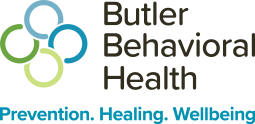News
What is High-Functioning Depression?
High-functioning depression, also known as persistent depressive disorder (PDD) or dysthymia, is a type of depression where individuals experience chronic low-level depressive symptoms. Unlike major depressive disorder, where symptoms may be severe and episodic, high-functioning depression involves persistent feelings of sadness, fatigue, and a lack of interest or pleasure in activities.
People with high-functioning depression often maintain a relatively normal daily functioning, which can make it challenging for others to recognize the extent of their internal struggles. They may continue to fulfill their responsibilities at work or in their personal lives, appearing functional on the surface, but they may be battling persistent negative thoughts and emotions.

Common Symptoms of high-functioning depression include:
-
Persistent sad or "empty" mood: Individuals may feel down most of the time, even if they can still engage in daily activities.
-
Fatigue: A constant sense of tiredness and low energy is a common symptom.
-
Difficulty concentrating: People with high-functioning depression may find it challenging to focus on tasks or make decisions.
-
Feelings of hopelessness: A pervasive sense of pessimism and hopelessness about the future may be present.
-
Changes in sleep and appetite: Insomnia or oversleeping, as well as changes in appetite (overeating or loss of appetite), can be symptoms.
-
Low self-esteem: Individuals with high-functioning depression may struggle with feelings of inadequacy and low self-worth.
It's important to note that while individuals with high-functioning depression may maintain a facade of normalcy, the emotional toll on their well-being is significant. Treatment options for high-functioning depression may include therapy (such as cognitive-behavioral therapy), medication, lifestyle changes, and support from friends and family.
If you or someone you know is experiencing symptoms of depression, it's crucial to seek professional help for an accurate diagnosis and appropriate treatment
